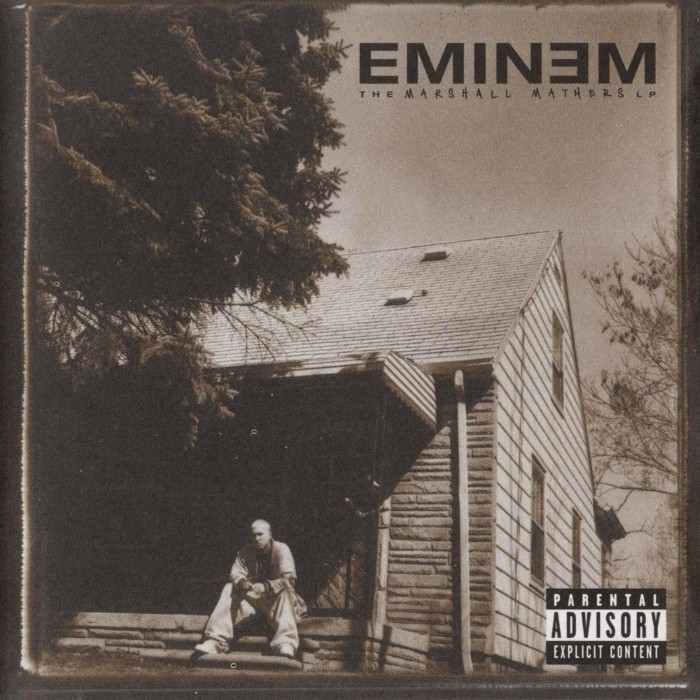The Marshall Mathers LP by Eminem

The Marshall Mathers LP is the third studio album by American rapper Eminem. It was released on May 23, 2000, by Interscope Records in the United States, and on September 11, 2000, by Polydor Records in the United Kingdom. The album was produced mostly by Dr. Dre and Eminem, along with The 45 King, Bass Brothers, and Mel-Man. The album sold more than 1.76 million copies in the US in the first week alone. In 2001, the album won the Grammy Award for Best Rap Album and was nominated for Album of the Year. The album was certified diamond by the Recording Industry Association of America in the United States with shipments over 10 million. As of May 13, 2012, the record had sold 10,598,000 copies in the US. As of 2005 the album had sold over 19 million units worldwide. The Marshall Mathers LP has been ranked as one of the greatest hip hop albums of all time by Rolling Stone, Time, and XXL. Rolling Stone placed the album at number 7 on its list of the best albums of the 2000s. The album was ranked number 244 by Rolling Stone on their list of The 500 Greatest Albums of All Time. In 2010, Rhapsody ranked it number 1 on their "The 10 Best Albums by White Rappers" list.
When Eminem put out the sequel to <i>The Marshall Mathers LP</i> in late 2013, he joined a small handful of rappers—including JAY-Z, Q-Tip and the late MF DOOM—who’d managed to still sound relevant after hitting 40. Age hadn’t matured him—at least not so much that he backed off the violence, misogyny and homophobia that made him a lightning rod 15 years earlier. But on <i>The Marshall Mathers LP 2</i>, there was a sense of awareness about his place in the culture that could be interpreted as maturity. He wasn’t a dark, twisted rapper; he was the dark, twisted rap <i>guy</i>: That was his role. So while the album’s shout-outs to Phife Dawg (“Legacy”)—as well as the old-school feel of tracks like “Berzerk” and “Survival”—could be described as nostalgia, they’re also Eminem’s way of saying that, no matter how good he is, he knows he’s just a piece in a much bigger cultural picture. By the time <i>The Marshall Mathers LP 2</i> arrived, the tabloids and headlines that once followed Eminem were mostly gone. It was just him, his notebook, his memories and a love for the music that made him. “They said I rap like a robot, so call me Rap-bot,” he proclaims at the top of “Rap God”, before offering five and a half of the most technically demanding minutes of his career. That’s the feat, but that’s also the joke—watch him go. Same, in a way, for something like “Legacy”, which listeners might realise squeezes five minutes of rhymes out of the same few syllables. In an interview with Eminem, conducted a few years after <i>The Marshall Mathers LP 2</i>‘s release, a <i>New York</i> magazine writer asked the rapper what he liked to do for fun. “Aside from writing? Mostly I love writing,” he said. “Yeah, writing is something I really enjoy.” It’s hard to tell whether or not he’s kidding, but on <i>LP 2</i>, the picture still comes through clear: Here’s a guy so consumed by rap that the rest of the world basically doesn’t exist.
